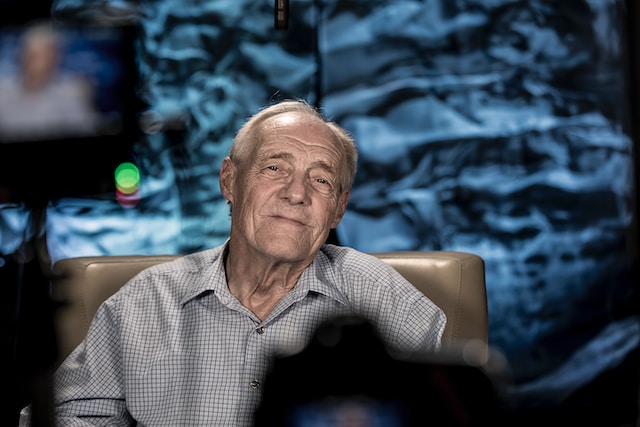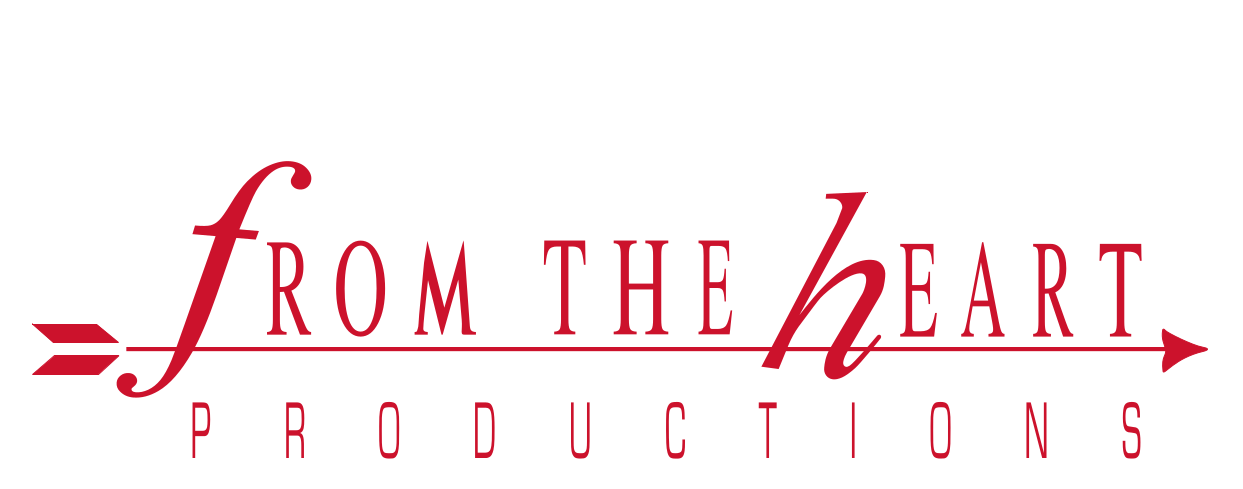“Good interviews don’t make good trailers; good stories make good trailers.”
by Carole Dean
In my first blog about my interview with Michael Torres on The Art of Film Funding Podcast, I shared his wisdom for creating successful film trailers. In this blog, we’ll go more in depth into best practices for conducting documentary interviews, and how to incorporate those into film trailers.

Michael is a talented filmmaker, editor and teacher, and considers himself a lifelong student. He combined his love of history and storytelling with his passion for metaphysical studies to create art that uplifts, inspires, and unites.
His first Installation, The Gods of Puerto Rico is a 12-part documentary series on Afro Puerto Rican revolutionary Pedro Albizu Campos and his quest for Freedom. Michael has created content for Fox Sports, Spotify Studios, The NFL Network, ESPN, and YouTube Originals. When he’s not in production, Michael is a teacher of metaphysical studies and meditation at the Agape International Spiritual Center in Los Angeles.
Michael has also been a friend of mine for many years. He was also a student in my Intentional Filmmaking Class. We were very fortunate to have him as a guest!
Plan in advance.
Documentarians often choose to include excerpts from their interview in their trailers. However, sometimes filmmakers just hope that the interview will produce good content for their trailers without planning enough in advance. This is not the best approach.
“If you’re hoping you capture what you need for your trailer,” Michael explains, “then you haven’t articulated a vision for yourself and your film, right? You need to be intentional about the stories you want to tell.
“During interviews you will get surprises and hear things to take you somewhere else. But the clearer you are about what you want and need from an interview, the more success you will have.”
Stories make good trailers.
Michael also gave some advice about a common pitfall for using interviews in a trailer. “I’m speaking from experience with this one, with my own film. Good interviews don’t make good trailers, good stories make good trailers. And so you might have this kick ass interview, the person is brilliant, but did they tell you a fantastic story?”
What he suggests you want to do instead is to use the interviews to craft a compelling story, not just give information.
“I think there’s a lot of prep that goes into preparing to film something for a trailer or do those initial interviews. I’d say research, research, research. Once you know who you’re going to interview, maybe they’ve been interviewed before, maybe they’ve been on television, maybe they have a blog post. Read an article that they’ve written, but understand how they communicate, and what their point of view is.”
Michael highly recommends conducting “pre-interviews” to prepare. “I love the world of Zoom and what that’s opened for us. We could do these pre-interviews on Zoom, and I’ve used Zoom interviews in trailers or bytes from Zoom interviews in trailers.
“That’s something you may not want for your finished piece, but to help you get these ideas down, I think that’s important. Then it’s taking that and really being clear about what it is before you sit down to talk to someone. Then you can have a real conversation. Then you can genuinely and sincerely be an interested listener and confidently know what that person can give you.”
Reduce your costs and do out of town interviews with Zoom.
Zoom is a great benefit for low budget documentaries. In many cases, I believe that footage from Zoom interviews is often good enough quality to include in a trailer, or sometimes in the documentary itself.
Michael agreed.
“I think we’re in a time,” he said, “where with our willingness to engage with social media that we don’t need to shoot an interview (on a Red Camera) necessarily. There’s a tolerance for low resolution video.
“There’s an intimacy that you get on a Zoom call that you don’t get in a standard sit-down interview… You’ve been on a Zoom call, you’ve been on the other side of that call. It’s not foreign to someone. So I think you get them to be a little more comfortable in a Zoom environment than you would in a three light setup and with a small crew under a hot light.”
This is so true! It’s not uncommon for someone you’re interviewing to have never been on a professional set or filmed with a professional crew and camera before. They might be nervous. They are more relaxed on Zoom. They’re in their home where they are comfortable, which can help you to get a very up close and personal conversation.
And of course, you’ll also save a lot of money without having to travel or hire a crew. This can be crucial if you are still raising funds or in early development for your film. You can get the interview you need for a trailer without spending anything.
A “chicken or egg” situation.
Michael expanded that “you can always go back and refilm that interview… now knowing exactly what you’re going to get, or having a better sense of what the subject can deliver. I think this is going to be a consistent feature in documentary going forward… the lower quality Zoom video camera, phone footage and things of that nature.”
Filmmakers often find themselves in a “chicken or egg” situation. They need to raise the $15,000 or so to make the trailer, but they need to have the trailer to raise money! Using Zoom interviews can help create that initial funding trailer when funds may be limited or nonexistent.
Furthermore, it shows that you are very creative by being able to get such great content over Zoom, and that you are resourceful for being able to create a compelling trailer for a minimum amount of money.
During your interviews, you must listen for the sound bite that will make the film or trailer move forward. Sometimes, this requires asking the same questions two or three different ways to get the response framed in a way that works.
To tell your story, ask leading questions.
“Some people will probably not like this,” Michael suggested, “but I tend to ask leading questions. I’ll pepper in a piece of the answer in my question, and then I’ll also be very clear with the person I’m interviewing that I need them to mirror back to me the question that I asked.
“So, for example, if I ask you, what’s your favorite color? I can’t do much as an editor if you just say ‘purple.’ But ‘my favorite color is purple’ just conveyed a piece of information. So, it’s being clear about the answer you want, and then figuring out ways to ask questions to get it.”
Learn Adobe Premiere or Final Cut
Once you have your interviews and other footage you can use for a trailer, the next step is to organize it and select the best clips to create the trailer. Michael recommends taking the time to at least learn enough editing on Adobe Premiere or Final Cut to create an assembly of your footage. You can learn everything you need on YouTube in a day.
Michael considers that “then you’ll be a proficient enough editor to assemble, to take an interview apart and break out bites and things of that nature just to play with it and begin seeing how it strings together.
Get interviews transcribed
“But I’d say even before that,” he suggests, “you want to take your interviews and get those transcribed. That’s a really important tool and resource for me. I lean on my transcripts and I try to cut on paper as much as I can before I start cuttingin the program, because I only get to see this a couple of times with fresh eyes. I only get to experience it a few times.
“And so I want to take it as far as I possibly can on paper and work with the producer or director that I’m working with to really get a tight outline. Knowing that once we start editing, that outline may go out the window. We might fall down the rabbit hole and it leads to somewhere else, but we’ve set an intention and we’re moving towards that intention. Now that we’re on that journey, we can allow it to take us where we want to go, but first we’ve set a destination.”
Rev.com is excellent for automatic transcriptions.
Michael and I both recommend using www.rev.com to create inexpensive transcriptions of your interview footage.
He considers it “a great resource. You could take your interview, you upload it, and minutes later you have a transcription. One thing I will just remind listeners is please, please, please get the time code, on your transcriptions. It really helps speed up the process when I know 10 minutes and 13 seconds is where I’m gonna find that bite versus listening through the interview to find it.”
I highly recommend you take a moment to view the trailer that Michael created for his Albizu docuseries at www.whoisalbizu.com, where you can also learn more about the project.
In case you missed it, please make sure to check out my first blog about my interview with Michael Torres (Insert Link Here). You can also listen to the full interview on Blog Talk Radio. You can learn more about Michael Torres at www.mtorresproductions.com.
Carole Dean is president and founder of From the Heart Productions; a 501(c)3 non- profit that offers the Roy W. Dean Film Grants and fiscal sponsorship for independent filmmakers.
profit that offers the Roy W. Dean Film Grants and fiscal sponsorship for independent filmmakers.
She is creator and instructor of Learn Producing: The Ultimate Course for Indie Film Production. 26 classes which will teach indie filmmakers how to produce their films.
She hosts the weekly podcast, The Art of Film Funding, interviewing those involved in all aspects of indie film production. She is also the author of The Art of Film Funding, 2nd Edition: Alternative Financing Concepts. See IMDB for producing credits




